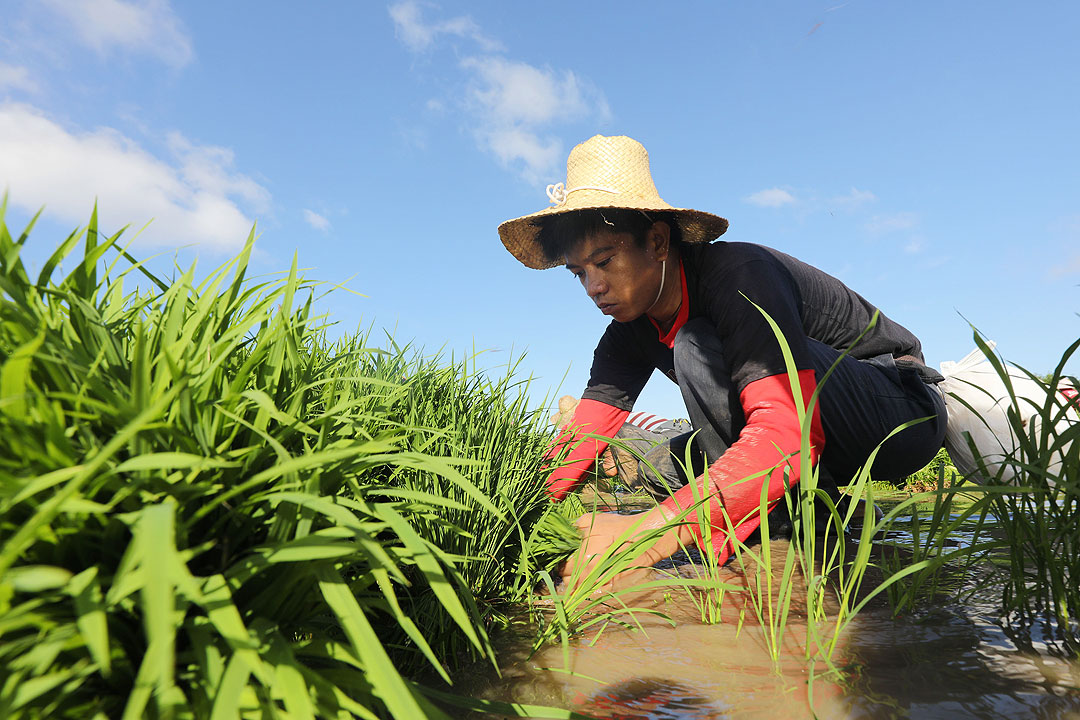Farm output in third quarter likely fell on impact of storms

By Adrian H. Halili, Reporter
AGRICULTURAL OUTPUT in the third quarter likely fell due to the impact of tropical cyclones on crops and livestock, analysts said.
Former Agriculture Secretary William D. Dar gave an estimate for the third quarter of a 3% decline, citing the unfavorable weather and the continued effects of African Swine Fever (ASF).
The value of farm and fisheries production fell 0.3% in the third quarter of 2023. Output in the second quarter of 2024 had declined 3.3%.
“The onset of tropical cyclones has badly affected third quarter output… La Niña with its heavy rainfall and flooding coupled with African Swine Fever will affect greatly Philippines agricultural output in the third quarter,” Mr. Dar said via Viber.
“Regions had been reporting increasing yield per hectare but due to typhoons and floods they have been (damaged). This also includes vegetable areas in Northern Luzon,” Philippine Chamber of Agriculture and Food, Inc. President Danilo V. Fausto said via telephone.
La Niña, which has not formally been declared but could persist until early 2025, increases the likelihood of tropical cyclones, low-pressure areas, and the intensification of the Southwest Monsoon, according to the government weather service, known as PAGASA.
University of Asia and the Pacific (UA&P) Center for Food and Agribusiness Executive Director Marie Annette Galvez-Dacul said via Viber that disease outbreaks, rising farm input prices, and weather disturbances continue to dampen agricultural output.
On the other hand, she said output could be buoyed by increased food consumption and the growth of the food services sector.
The continued likelihood of strong typhoons will affect livestock, Alfred Ng, vice-chairman of the National Federation of Hog Farmers, Inc. (Nat Fed) said via Viber, particularly in terms of crops that serve as animal feed.
“Corn has suffered losses in typhoon-hit provinces,” Mr. Ng added.
According to a Philippine Statistics Authority (PSA) report released on Oct. 15, output of palay (unmilled rice) likely declined 12% to 3.35 million metric tons (MT) during the third quarter compared with actual output a year earlier.
The corn harvest is believed to have increased 2% to 2.53 million MT compared with actual output a year earlier.
Federation of Free Farmers National Manager Raul Q. Montemayor said via Viber that delayed planting of rice due to the late onset of rains is a factor in the quarter, pushing back the main harvest to the fourth quarter, “but now even fourth quarter crop will be affected by typhoons and floods.”
Palay production is estimated to drop to a four year low of 19.41 million MT in 2024. If realized, this would be equivalent to a 3.24% decline from 2023. The current 2024 forecast had been downgraded from the 20.1 million MT estimate the DA issued in August.
The forecast suggests that the rice industry could be in for its worst production totals since 2020, during which output of the grain totaled 19.29 million MT.
The hog federation’s Mr. Ng said that respiratory diseases are likely to spread in such conditions, affecting mortality rates and animal growth.
He added that increased likelihood of flooding could potentially spread the ASF disease in unaffected areas.
Floods can also be a threat to the swine sector as ASF could bypass the biosecurity measures of otherwise clean farms, he added.
There are 108 municipalities across 25 provinces with active ASF cases as of Oct. 18, the Bureau of Animal Industry reported. The ASF virus was first detected in the Philippines in 2019.
Mr. Ng said that due to renewed outbreak of ASF cases starting August, “many farms will repopulate cautiously, but the impact on may show up sometime first quarter of next year.”
In August, the DA began a limited rollout of the ASF vaccine to smallholder farmers. The department has since included commercial hog farms enrolled into the DA’s Integrated National Swine Production Initiatives for Recovery and Expansion Program.
So far, only the AVAC ASF Live vaccine from Vietnam has been approved by the Food and Drug Administration for the controlled rollout. About P350 million was allocated by the DA to procure 600,000 doses.
The PSA is scheduled to release third-quarter data on farm output on Nov. 6, Wednesday. The agriculture industry accounts for about a 10th of gross domestic product and around a quarter of all jobs.



